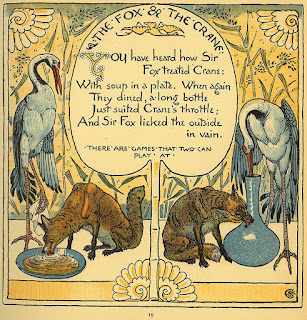Understanding the Impossible
Mysteries are either solvable or they are not.
How do you attempt to understand the impossible?
How do you distinguish between the impossible and the implausible?
How do you attempt to identify the contents, properties and sources of chemical compounds and composite materials?
What do you know about ways to prevent and treat contagious diseases?
What do you know about social contagion?
How do you distinguish between the definition of witch and the purported practice of witchcraft?
How do you know when knowledge has been deliberately hidden?
How do you know when a claim of hidden knowledge is actually nonsense?
How do you know when a claim of non-hidden knowledge is actually nonsense?
How do you interpret ideas about the divine and the mystical and the esoteric?
How do you interpret ideas about enlightenment?
How do you compare the Naples Dioscurides with the Voynich manuscript?
How do you compare those works with this grimoire?What is your acquaintance with neuroticism, culture-bound syndromes, phobias, moral panics, witch-hunts, mass psychogenic disorders, fanaticism, and psychoactive drugs?
What is you acquaintance with purportedly Christian views on magic and medicine and the artistic use of imagination?
How do you tell the difference between spiritual gifts and evil powers?
Societies must decide whether they wish to be ruled by reasonableness or madness. It is not possible to combine both approaches. Even a slight amount of madness makes the entire approach mad.
Madness is associated with folk religion and organised religion. It is associated with popular culture and organised crime. It is associated with crazy dances and dance crazes. It is associated with Lisztomania and Beatlemania. It is associated with junk food and advertising jingles. It is associated with purportedly sacred contagion.What do you know about behavioural contagion?
What is your acquaintance with the Libellus de Medicinalibus Indorum Herbis?
What do you know about good nutrition?
What do you know about Father Christmas, the Easter Bunny and the Tooth Fairy?
What do you know about exorcists and exorcisms?
How do you attempt to ascertain the boundaries of spirituality and maintain those boundaries against the madness of stupidity, cruelty and possibly well-meaning abuse?
What is your acquaintance with silhouettes?How do you interpret the shadows of perception?
Those shadows are the key to understanding the impossible.
You may associate expenditure on luxurious pleasures, or even the frugal expression of simple creativity, with the desire to experience escapism.
Yet perceptions of pleasure are mostly subjective. They may, in fact, be based on considerable ignorance and possibly even cruelty.Escapism imagines the impossible to be possible.
How do you attempt to understand escapism?
How have you been investing in understanding, and for what purpose beyond it, if any?
How, if at all, have you been investing in a gentle philosophy?
How do you know you are investing in value?
Why are you investing time in reading this grimoire?
Perhaps you are mostly interested in looking at the pictures within it.How, if at all, are you investing in better communities, and how do you know?
What does investing in real friendships mean to you in practice?
Who has been helping you to learn about investing in conservation, and how?
How close to midnight are dangers in the world, and in your own life?
What have you been learning about energy consumption and energy conservation, and for what reasons?
How (else) do you attempt to understand the physical world?
How do you prefer to develop and test hypotheses?
How do you prefer to approach the task of investing in the delights of adequately ethical compatibility?
How have you been investing in magnificent maturity?
What is your preferred approach to investing in health, and why?
How reasonably have you been investing in honesty?How reasonably have you been investing in privacy?
Where, if anywhere, have you been investing in simple living?
What is your preferred approach to investing in elegant egalitarianism?
How carefully have you been investing in anti-establishmentarian necessities?
How wonderfully have you been investing in the harmonious interplay of beauty, understanding and magnificence?
How is this grimoire informing your investment practices?Many investment 'advisors' convince the gullible that it is possible to understand the impossible by paying a large fee, or donation.
How have you been investing in improving political practices, and financial ones?
How can you be sure you are investing in a sensible approach to sustainability?
Perhaps you regard the investments outlined above to be impossible.











Comments
Post a Comment